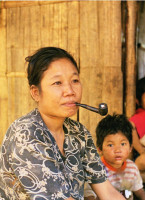Civil Society Gaining Ground Opportunities for Change and Development in Burma
Topics
Regions
Local organisations have adopted different strategies towards the authoritarian government in Burma. Focussing on the dynamics of civil society Tom Kramer looks into the possibilities and risks of growing international interest in engagement with these groups.

Download PDF
Despite decades of military rule and civil war, Burma has a dynamic and diverse civil society. There are a wide variety of informal groups and formal organisations, reflecting ethnic and cultural diversity. Social organising has a long history in Burma. For centuries people have carried out social and religious activities together, mostly through informal religious networks. Into the 21st century, faith-based organisations have played an important role in the continuation of civil society.
Local organisations have adopted different strategies towards authoritarian government. While some prefer to work under the radar, a growing number of local organisations are engaging with the government. Local organisations are not just using the available space, but they are also actively enlarging and creating new space in culture, daily life and society.
Civil society in Burma has grown significantly during the past two decades. In ethnic nationality regions, the main impetus for this development was a series of cease-fire agreements in the 1990s between the military government and armed ethnic opposition groups. Civil society in Burma further developed to fill the gap created by the lack of government services. New threats to natural resources and the environment in Burma’s border regions further stimulated their growth. Following Cyclone Nargis in May 2008, the space for civil society further expanded across the country.
The increased interest of the international community in working with civil society in Burma raises further important issues. Until recently, few international actors developed a strategy to support civil society in the country. While this new interest is a positive development, it raises a number of questions about how these relationships can be developed to ensure that they are mutually beneficial and do not only serve the donor or programme needs of international organisations.
Furthermore, there are concerns about potential risks posed by international support to local organisations. These include security risks for local organisations vis-a-vis the government, as well as risks in enforcing “one-size-fits-all models” on Burmese civil society. If this happens, existing or alternative models for development will be ignored.
This joint TNI-BCN project aims to stimulate strategic thinking on addressing ethnic conflict in Burma and to give a voice to ethnic nationality groups who have until now been ignored and isolated in the international debate on the country. In order to respond to the challenges of 2010 and the future, TNI and BCN believe it is crucial to formulate practical and concrete policy options and define concrete benchmarks on progress that national and international actors can support. The project will aim to achieve greater support for a different Burma policy, which is pragmatic, engaged and grounded in reality.
The Transnational Institute (TNI) was founded in 1974 as an independent, international research and policy advocacy institute, with strong connections to transnational social movements and associated intellectuals concerned to steer the world in a democratic, equitable, environmentally sustainable and peaceful direction. Its point of departure is a belief that solutions to global problems require global cooperation.
Burma Center Netherlands (BCN) was founded in 1993. It works towards democratisation and respect for human rights in Burma. BCN does this through information dissemination, lobby and campaign work, and the strengthening of Burmese civil society organisations. In recent years the focus has shifted away from campaigning for economic isolation towards advocacy in support of civil society and a solution to the ethnic crises in Burma.
Pages: 53

